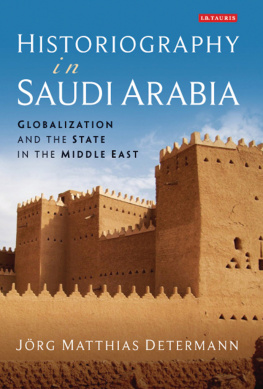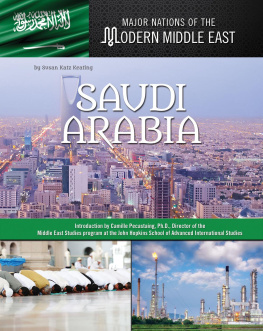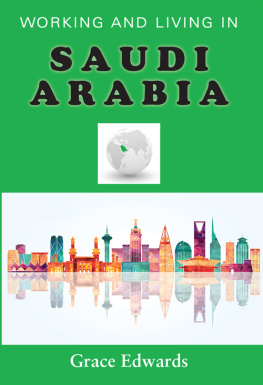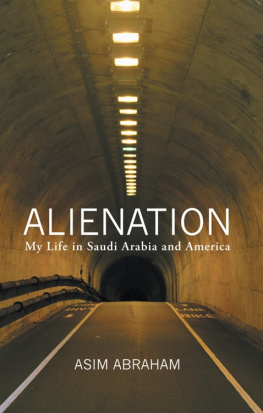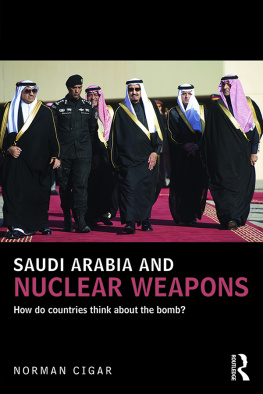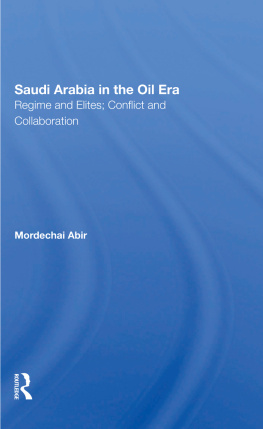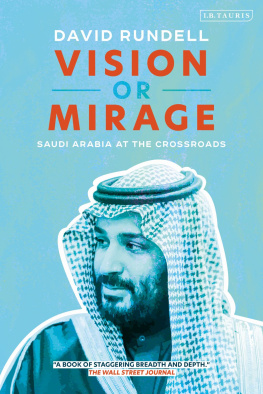I completed this book as a Zentrum Moderner Orient Fellow at the Berlin Graduate School Muslim Cultures and Societies, Freie Universitt Berlin. I am very grateful for this fellowship. However, most of the research for this book was undertaken at the School of Oriental and African Studies (SOAS), University of London, between 2008 and 2012. My main source of guidance during this period was Konrad Hirschler. He has been an invaluable source of excellent advice that I could access whenever and wherever I needed it. Besides him, a number of researchers provided me with helpful comments on the manuscript. They include my former teachers Nelida Fuccaro and Teresa Bernheimer as well as my friends and colleagues Niladri Chatterjee, Fadi Dawood, Jonathan Ercanbrack, Linda Matar, Toby Matthiesen, Matthew Phillips, Melania Savino, Hania Sobhy, Fabian Stremmel, Stefano Taglia, Michael Talbot and Philipp Wirtz. In addition, several specialists on Saudi Arabia and Arab historiography from outside SOAS, including Mike Farquhar, Ulrike Freitag, James McDougall, Annemarie van Geel, Jakob Krais, Philippe Ptriat, Menno Preuschaft, Nils Riecken and Nadav Samin, provided me with very useful feedback. In the later stages of my research, several Saudi historians, among them Abdullah al-Askar, Khalid al-Dakhil, Fayez al-Harbi and Fahd al-Semmari, kindly commented on different chapters. Martyn Smith kindly proofread the manuscript besides providing general comments. Maria Marsh helped with various production issues and suggested the title.
I also thank a number of researchers for providing me with further valuable advice. They include Abdullah Al-Muneef, Mohammed Abdullah Al-Tuwaijri, Ben Fortna, Greg Gause, Gerald Hawting, Andrew Jackson, Rdiger Lohlker and Pascal Mnoret. I also thank Rosie Bsheer for sending me a manuscript of her MA dissertation at Columbia University on Teaching the Nation: Citizens and the State in Saudi Arabian History Textbooks. I am also very grateful to Albert Waldmann for much practical help during my first stay in the kingdom between 2007 and 2008, when I made the initial preparations for the study. Finally, Debbie Usher kindly helped me in accessing the Philby collection in the Middle East Centre Archive, St Antonys College, Oxford, in 2011.
In this research, I was very fortunate to receive financial support from a number of organizations. Gerda Henkel Foundation provided me with generous funding between 2009 and 2012. I also sincerely thank the Abdullah Al-Mubarak Al-Sabah Foundation and the British Society for Middle Eastern Studies (BRISMES) for granting me an Abdullah Mubarak BRISMES Scholarship. SOAS and the Society for Arabian Studies provided additional travel grants. The support by all these organizations allowed me to undertake extended fieldwork in Saudi Arabia. It also allowed me to present preliminary results of my work at a number of conferences, where I received useful feedback. They include the BRISMES annual conferences in Manchester in 2009 and in Exeter in 2011, the Third World Congress of Middle Eastern Studies in Barcelona in 2010, and the annual meeting of the Middle East Studies Association in San Diego in 2010. I was also fortunate to present my work at the workshop Arabic Pasts: Histories and Historiographies in London in 2009 and in a lecture at the Institute for the Transregional Study of the Contemporary Middle East, North Africa and Central Asia, Princeton University, in March 2010.
Furthermore, I thank the King Faisal Center for Research and Islamic Studies in Riyadh for hosting me as a visiting scholar for a total of five months between 2009 and 2011. The help, kindness and warmth of all the people at the Center, including Yahya Ibn Junaid, Ibrahim Al-Hadlaq and Awadh al-Badi, made my fieldwork in the kingdom as enjoyable as it was inspiring. In addition, I thank the King Abdulaziz Foundation for Research and Archives for granting me access to its vast library collections and for providing me with dozens of its publications. During my fieldwork, I was also fortunate to present my research in three lectures and to discuss them with Saudi historians as well as other researchers. The first lecture was organized by the King Faisal Center in November 2009, the second by the department of history at King Khalid University in Ab in February 2010, and the third again by the King Faisal Center in October 2011.
Moreover, I express gratitude to all my interviewees for their time, cooperation, the numerous books and unpublished manuscripts they presented to me, and, in many cases, for their friendship. These interviewees have not only been a major source of biographical information about Saudi historians. They have also often pointed out important written sources, which I might have overlooked otherwise, and shared their own interpretations of historiography in the kingdom with me. Special thanks go to Abdullah al-Askar for sending me parts of his unpublished memoirs My Historical Writings (Kitbt al-trkhyah).

